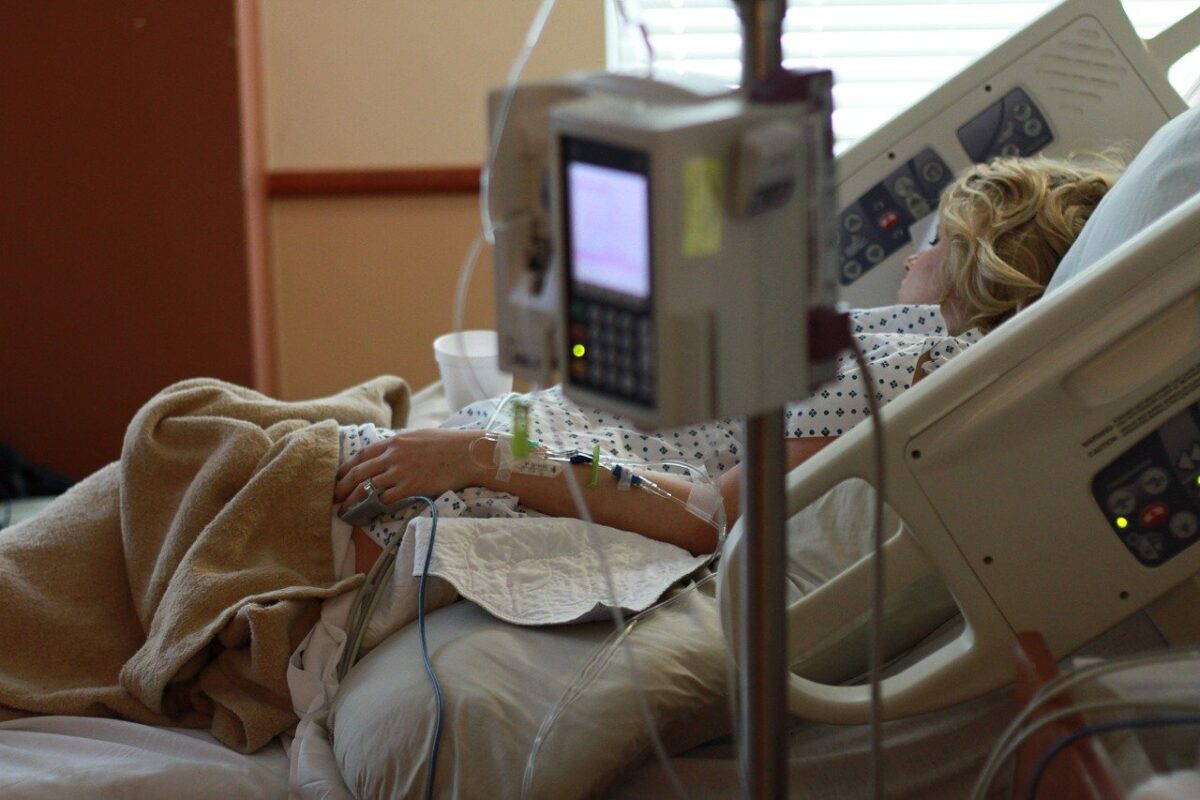The International Diabetes Federation says that a gestational diabetes diagnosis affects about one in seven births. It is estimated that nearly ten percent of pregnancies in the United States are affected by gestational diabetes yearly. A gestational diabetes diagnosis can seem scary but is very common. Millions of women are diagnosed with gestational diabetes, so you should not feel alone if you are also diagnosed.
What Does A Gestational Diabetes Diagnosis Mean?

Gestational Diabetes is a form of diabetes that women develop for the first time while they are pregnant. Gestational diabetes directly affects how the cells in your body use the sugars you ingest. It is similar to type 2 diabetes where your body does not make enough insulin or doesn’t use your insulin efficiently to regulate the glucose in your body. It causes high blood sugar because the insulin in your body is not working quickly enough to convert your sugar to energy. There are two types of gestational diabetes, A1 and A2. A1 can be managed through diet and exercise while people with A2 need to take insulin injections or other medications.
Read More: The Undeniable Importance Of Mental Health Awareness During Pregnancy
Normally, the hormones in your body keep your blood sugar at a normal level. However, your hormone levels change drastically during pregnancy to provide all the nutrients your baby needs which make it harder for your hormones to keep your blood sugar in check. The hormones from your placenta, meant to help your baby develop, essentially block the actions of your insulin in your body if you receive a gestational diabetes diagnosis.

A gestational diabetes diagnosis is not the same diagnosis associated with the type of diabetes that causes long-term effects. It typically goes away shortly after you deliver. At that point, the hormones in your body will regulate and your blood sugar will return to normal. If you have gestational diabetes, you will need to be screened six to eight weeks after you give birth and again every year to ensure your blood sugar is not too high and that you have not developed type 2 diabetes.
Read More: 5 Pregnancy-Safe Teas For The Tea Lover
Signs and Symptoms of Gestational Diabetes
Gestational diabetes doesn’t typically cause noticeable signs or symptoms. Most of the symptoms a woman may experience with gestational diabetes are typical symptoms of pregnancy, so they are often mistaken as simple pregnancy symptoms without causing much concern. Some of the symptoms you may experience with gestational diabetes are increased thirst, increased hunger, more frequent urination, blurred vision, fatigue, and snoring. The way most women find out they have gestational diabetes is through their prenatal gestational diabetes screen.
Gestational Diabetes Screening
Your doctor will have you tested for gestational diabetes between 24 weeks and 28 weeks as part of your prenatal care. Every pregnant woman goes through the initial one-hour gestational diabetes glucose test. For the one-hour glucose test, you will have your blood drawn while fasting, drink fifty grams of glucose juice, and then have your blood drawn a second time an hour later. Based on the results of your one-hour glucose test, you may have to take an additional three-hour glucose test. For the three-hour glucose test, you will have your blood drawn while you are fasting, drink one hundred grams of glucose juice, and then have your blood drawn once an hour for the next three hours.

Failing your gestational diabetes screen can cause fear, disappointment, shame, and can even lead to depression. However, it is important to remember that receiving the gestational diabetes diagnosis is not your fault. Researchers don’t even know why some people get gestational diabetes while others don’t. Some research suggests that women with excess weight, minimal physical exercise, polycystic ovaries, diabetes in their family, high blood pressure, high cholesterol, heart disease, prior gestational diabetes diagnosis, prior miscarriage, prior stillbirth, or prior birth of a baby weighing more than nine pounds are more susceptible to gestational diabetes.
Women of African American, Hispanic, American Indian, and Asian American ethnicity or over the age of twenty-five are also considered at higher risk according to studies. There is no true way of preventing gestational diabetes since researchers aren’t even sure what causes it, but adopting healthy habits before becoming pregnant and when you do become pregnant increases your chances of not having gestational diabetes.
Being Diagnosed with Gestational Diabetes
If you receive a gestational diabetes diagnosis, the high blood sugar caused by it can cause complications for you and your baby, but there are steps you can take to control gestational diabetes. As long as you exercise self-control and stay focused on being healthy, your baby will be fine. Your doctor will recommend daily exercise, a modified diet, and insulin or other medications in some cases to regulate your blood sugar. If you do have to give yourself insulin, it does not mean you have done anything wrong.
Of course, many women do all the right things, exercise daily, eat healthily and still need insulin. It is important to just always ensure you are following your doctor’s directives and being aware of what you eat and drink. It is also important to remember that untreated gestational diabetes can result in a stillbirth, so you must seek treatment and stay closely monitored by a doctor if you have the condition.
You will need to check your blood sugar levels four or more times a day, check your urine for ketones, and keep track of your weight. The American Diabetes Association recommends the following target readings for blood sugar levels: 95 mg before a meal, 140 mg an hour after a meal, and 120 mg two hours after a meal. You may also need to have more checkups, so the doctor can closely monitor your symptoms, blood sugar, and your baby’s health.
Read More: 7 Ways To Get A Restful Night During Pregnancy
Risks to Your Baby

The risks of gestational diabetes to your baby include excessive birth weight, early birth, breathing difficulties, low blood sugar, obesity, and type 2 diabetes later in life or in some cases stillbirth. With excessive birth weight, it is harder for the baby to get through your birth canal. The baby can become wedged and sustain injuries if circulation is cut off due to being wedged. +
If your doctor believes your baby is too big, they will opt for a c-section. The doctor may also recommend delivering your baby early if your baby is getting too big. However, early birth can result in breathing difficulties known as respiratory distress syndrome. Choosing to induce you early will not be a decision the doctor comes to lightly. It takes a lot of consideration for the baby’s health and abilities to survive outside your womb as well as your safety.
A baby born to a mother with a gestational diabetes diagnosis will be checked shortly after birth for low blood sugar because they will need to make sure the baby’s blood sugar is normal or the baby could suffer from seizures. If your baby’s blood sugar is low, the doctor will give your baby glucose through an IV until your baby’s blood sugar returns to normal. Your baby’s blood sugar will be monitored for hours after you give birth. Your baby will be more likely than other children to get type 2 diabetes later in life due to your gestational diabetes. However, a healthy lifestyle with diet and exercise can minimize the risk of your baby getting type 2 diabetes.
Risks of A Gestational Diabetes Diagnosis to You
If you receive a gestational diabetes diagnosis, you may suffer from preeclampsia, a serious pregnancy complication that causes high blood pressure, and other symptoms that can threaten your life and the baby’s life. Diet and exercise will help you get an upper hand on gestational diabetes. You should work with your doctor when determining the type of exercises you can safely do while you are pregnant. You want to ensure you are getting enough exercise, but that you aren’t overdoing it.

Women who have received a gestational diabetes diagnosis have a greater chance of getting type 2 diabetes later in life. Studies show that fifty percent of women who have gestational diabetes will get type 2 diabetes five to ten years after they are diagnosed with gestational diabetes. The best ways to avoid or minimize your risk of getting type 2 diabetes are to continue with a high fiber low-fat diet, continue exercising, lose weight and maintain a healthy weight. Walking thirty to ninety minutes after eating can help lower blood sugar levels. You should balance the number of carbohydrates you eat, eat three balanced meals, and two to three snacks daily that consist mostly of vegetables and fruits.
It is important to remember that gestational diabetes is manageable, and you can beat it. A gestational diabetes diagnosis does not need to define your pregnancy. Set your mind towards goals you can achieve to minimize your risk and then follow through. If you can do that, you and your baby will be safe for years to come.
Photo Credits: Pexels, Pixabay
SOURCES: American Diabetes Association. “Gestational Diabetes and A Healthy Baby? Yes.” Copyright 1995-2021. American Diabetes Association. Viewed 16 August 2021. https://www.diabetes.org/diabetes/gestational-diabetes
Centers for Disease Control and Prevention. “Gestational Diabetes and Pregnancy.” Viewed 18 August 2021. Last Reviewed 14 July 2020. Center for Disease Control and Prevention. https://www.cdc.gov/pregnancy/diabetes-gestational.html
Dasinger, Michael MD, medically reviewed. “Gestational Diabetes.” 13 December 2019. Viewed 17 August 2021. https://www.diabetes.org/diabetes/gestational-diabetes
Macon, Brindles Lee. “Gestational Diabetes.” 5 June 2018. Healthline. Viewed 18 August 2021. Medically Reviewed by Ernst, Holly PA-C. https://www.healthline.com/health/gestational-diabetes
Mayo Clinic. “Gestational Diabetes.” 21 August 2020. Viewed 16 August 2021. Copyright 1998-2021 Mayo Foundation for Medical Education and Research (MFMER). https://www.mayoclinic.org/diseases-conditions/gestational-diabetes/symptoms-causes/syc-20355339
Morgan, Sue RD, LDN, CDE. “The Truth About Gestational Diabetes.” 2021 Edward-Elmhurst Health. https://www.eehealth.org/blog/2017/11/gestational-diabetes/
Want to Read More?
Are you preparing for your first pregnancy? Here is a list of What To Expect At Your First Pregnancy Ultrasound.
💖 NEWSLETTER: DAILY READS IN YOUR INBOX 💖
Sign up to receive our picks for the best things to do, see and buy so you can relax and focus on more important tasks! Let us help you be the best version of yourself you can be!
GET MORE FROM DAILY MOM, PARENTS PORTAL
Newsletter: Daily Mom delivered to you
Facebook: @DailyMomOfficial
Instagram: @DailyMomOfficial | @DailyMomTravel | @BestProductsClub
YouTube: @DailyMomVideos
Pinterest: @DailyMomOfficial
📌 LOVE IT? PIN IT!📌










































